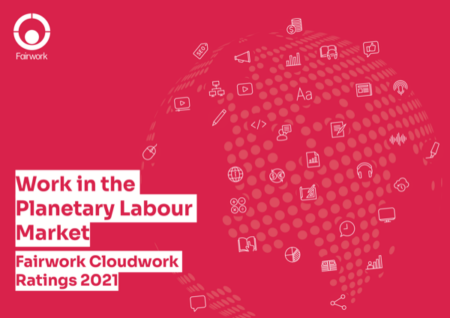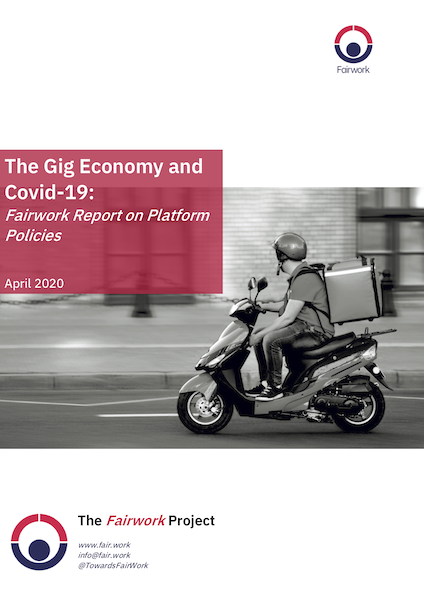
Research Programme on AI & Work
This programme supports research in the sphere of AI & Work.
Nancy’s research examines how public understanding of emerging technologies develops through interaction with those technologies in cultural spaces. Alongside her DPhil research she has lead a project on gender-sensitive UX design, supported by the Dieter Schwarz programme on AI and Work. Since 2015 Nancy has held both policy and UX research positions focusing on the in-depth understanding of the adoption and use of new technologies. She has worked at the Institute of Ethics in AI, Meta, and on multiple projects under IDRC’s networked economies programme in SWANA. Nancy has been awarded the Zonta Woman in Technology Fellowship and the Dame Stephanie Shirley Scholarship while at the OII, and holds a BA from the American University in Cairo and MSc from SOAS, University of London.

This programme supports research in the sphere of AI & Work.

This project seeks to understand the gendered experiences of UK gig workers, to explore common safety risks associated with e-hailing and delivery work, along with examining risk-mitigation tactics employed by workers in response to platform design.

This project interrogates the impact of AI on cultural heritages and the presentation of these futures through public-facing exhibition spaces. It will interrogate the agency of AI within exhibit contexts, exploring its role in creativity.
By Kelle Howson, Hannah Johnston, Nancy Salem, Robbie Warin, Fabian Ferrari, Yihan Zhu, Pablo Aguera Reneses, Funda Ustek-Spilda, Daniel Arubayi, Srujana Katta, Shelly Steward, Matthew Cole, Adam Badger, and Mark Graham
What sort of working standards do gig economy remote workers face? This Fairwork report scores 17 platforms on the conditions they offer, and highlights the failure to offer basic standards of fairness across much of the cloudwork industry.

By Funda Ustek-Spilda, Richard Heeks, Mark Graham, Alessio Bertolini, Srujana Katta, Sandra Fredman, Kelle Howson, Fabian Ferrari, Mounika Neerukonda, Pradyumna Taduri, Adam Badger, and Nancy Salem
The COVID-19 pandemic has hit precarious gig workers particularly hard. This Fairwork report considers platforms’ responses to the virus and suggests that work remains to sufficiently protect their workers.


27 October 2023
The OII is leading the debate on Artificial Intelligence. Generative AI has been a key area of interest for faculty, researchers and students for many years. This article brings together some of this work to date and highlights forthcoming work.

5 October 2023
Oxford Internet Institute doctoral researchers Rutendo Chabikwa and Nancy Salem put forward the case for adopting a feminist perspective to tech governance.
8 June 2022
New Oxford report reveals best and worst practices in UK gig economy.
27 April 2020
A new report has shone a light on the plight of some 50 million gig economy workers across the world since the onset of the COVID-19 pandemic.

Thomson Reuters Foundation News, 04 May 2023
The taxi industry is one of the most gender-skewed professions in the world. The situation is slightly better when it comes to ride-hailing apps like Uber, but that comes with its own set of problems...

Personnel Today, 09 June 2022
Only three of the UK’s most well-known digital labour platforms – Getir, Gorillas and Pedal Me – ensure their workers earn the minimum wage, a new study suggests.

Associate Professor, London School of Economics
Dr Omar Al-Ghazzi is Associate Professor in the Department of Media and Communications at LSE. He works on the geopolitics of global communications.

Associate Professor, Senior Research Fellow
Kathryn Eccles has research interests in the impact of new technologies on Humanities scholarship, and the re-organisation of cultural heritage and higher education in the digital world.